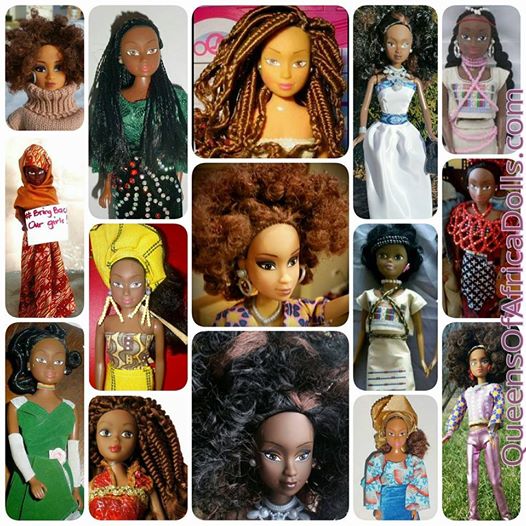
Taofick Okoya couldn’t find a doll that looked like his daughter, so he decided to do something about it.
Queens of Africa celebrates being an African girl in the 21st century
The Queens of Africa program is dedicated, through the use of books, dolls, comics, music and animation series, to help empower children of African descent to be confident and mature ethically. The dolls and accessories are designed, through fun and engaging materials, to subconsciously promote African heritage. Developed by entrepreneur and philanthropist Taofick Okoya, the program has reached tens of thousands of children across Africa contributing significantly to education programs, particularly in Nigeria.
Queens of Africa: role models African girls can relate to
“Empowering the African girl child” is the motto of Queens of Africa; a Nigerian brand of dolls founded by Taofick Okoya in 2007. — Writes Declan Eytan, for Forbes. The doll range depicts various African ethnicities, as well as a variety of African hairstyles (customers may opt for dolls rocking an afro, or alternatively one with braids or braid extensions). Okoya’s mission is to spread a message which enforces young black girls their self-esteem, allowing them from an early age to have role models they can relate to.

“My daughter was young, and I realised she was going through an identity crisis,”
"I got into the doll business by chance. At that time my daughter was young, and I realised she was going through an identity crisis," Taofick told Declan Eytan, when he interviewed the Lagos-based founder over the phone.
He added, "She wished she was white, and I was trying to figure out where that came from. I used to always buy her white dolls, and it never got to me that is was relevant which colour her dolls were. On top of that, we have DSTV in Nigeria where children watch the Disney programs, and all her favourite characters were white. I started to understand why she’d feel the way she did, because it was all that she’d been exposed to," the Queens of Africa dolls creator explains.
Upon realising the non-existence of black dolls within the Nigerian market, he decided to create a brand of his own. The dolls’ body parts are manufactured in China, and are subsequently assembled in Nigeria. In the midst of it all, Taofick also empowers local communities of stay-at-home mothers, who make money off of braiding the dolls’ hair and creating outfits. "It takes about three hours braiding the hair. One of these women has made 60,000 Naira (roughly $300) doing this."
Source: Forbes Main Image: QueensOfAfricauk.com

Corporate social responsibility
On the dolls’ website it explains — ‘At FICO Solutions, we believe that serving the children within our communities is our responsibilities. Our mission is to promote a positive self-identity in African girls as well as preserve the African culture. The Queens of Africa project is a Girl child empowerment program with the goal and aim of inculcating into the African Girl child positive attributes and interest through play by using fun and entertaining ways. The Queens of Africa characters are designed to represent progressive qualities such as endurance, peace and love while developing literary potentials in our children as well as enhancing their career development for future.’
Source: QueensOfAfricaDolls.com

You too can own a Princess of Africa! Click here to find out more!
Wherever you are in the world you can still own one of these beautiful dolls. Simply click the above link to be taken to the online stores worldwide.